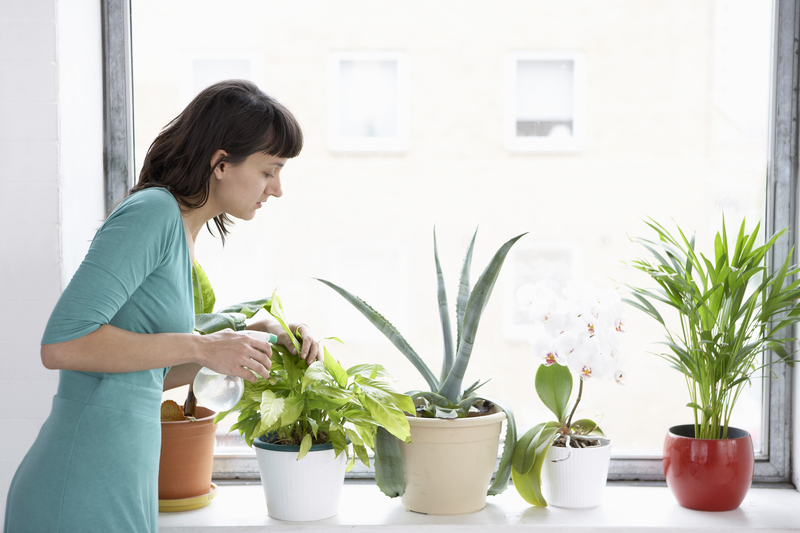Optimal Timing for Applying Manure in the Garden
Posted on 08/05/2024
Gardening is a rewarding and enjoyable hobby, but it takes hard work and careful planning to achieve a successful harvest. One crucial aspect of gardening is fertilizing, which provides plants with the necessary nutrients for growth. While there are many types of fertilizers available, one organic option that has been used for centuries is manure. However, applying manure at the wrong time can do more harm than good. In this article, we will discuss the optimal timing for applying manure in the garden, its pros and cons, tips for using it effectively, and key takeaways.
Understanding Manure as a Fertilizer
Manure is animal waste that contains various nutrients such as nitrogen, phosphorus, and potassium. It also improves soil structure and water retention capabilities. These essential elements help plants to develop strong roots, colorful flowers, and abundant fruits or vegetables. Manure can be obtained from cows, horses, chickens, rabbits, sheep, and other livestock.
There are two forms of manure - fresh and composted. Fresh manure has high levels of ammonia, salts, and bacteria that can potentially burn plant roots if applied directly to the garden. On the other hand, composted manure has been mixed with other organic materials and allowed to decompose over time. This process reduces its concentration of harmful substances and creates a more balanced ratio of nutrients.

The Best Time to Apply Manure in the Garden
Timing is crucial when it comes to using manure as a fertilizer. Fresh manure should never be used directly on plants or in the garden bed as it can cause more harm than good. Instead, it should be composted first before being utilized as a fertilizer. The best time to apply manure in the garden is during fall or winter.
Applying manure during these times allows it to break down slowly over the colder months without damaging plants. By spring, the nutrients will have fully decomposed and can be easily used by plants.
The Pros and Cons of Using Manure in the Garden
Like any other fertilizer, manure has its advantages and disadvantages. Let's take a look at the pros and cons of using manure in the garden.
Pros:
- Natural source of nutrients: Manure is an organic source of nutrients for plants, making it more environmentally friendly compared to synthetic fertilizers.
- Improves soil structure: The microorganisms in manure help to break down and loosen compacted soil, allowing for better aeration and water retention.
- Cost-effective: For those who have access to livestock manure, it can be a cost-effective way to fertilize their garden.
- Long-lasting effects: Manure contains slow-release nutrients that can benefit plants for an extended period, reducing the need for frequent reapplication.
Cons:
- High risk of burning plants: As mentioned earlier, fresh manure can contain high levels of harmful substances that can potentially burn plant roots if applied directly onto them.
- Unpleasant odor: Composted manure still has a distinct smell that may not be appealing to some people.
- Risk of contamination: If manure from sick animals or animals treated with antibiotics is used as fertilizer, it can contaminate plants with harmful bacteria.
Tips for Using Manure Effectively in the Garden
To avoid any potential problems when using manure as fertilizer, here are some useful tips:
1. Always compost fresh manure before using it in the garden.
2. Do not use fresh manure on leafy vegetables such as lettuce or spinach.
3. Avoid using uncomposted manure near water sources to prevent contamination.
4. Use composted manure sparingly, especially if it is rich in nitrogen, as this can lead to excessive leaf growth and reduced fruit production.
5. Wear gloves when handling manure to avoid any potential health risks.

Key Takeaways
- Manure is an organic fertilizer that provides important nutrients for plants and improves soil structure.
- Fresh manure should never be used directly on plants or in the garden bed.
- Fall or winter is the best time to apply manure in the garden.
- Manure has pros and cons, including being a natural source of nutrients but having a risk of burning plants if not composted properly.
- To use manure effectively, always compost it first, wear protective gear, and use it sparingly.
Conclusion
In conclusion, applying manure at the right time is crucial for its effectiveness as a fertilizer. By understanding its pros and cons and following some helpful tips, you can harness the benefits of this organic fertilizer while avoiding any potential problems. Remember to always compost fresh manure before using it in your garden and handle it with caution to ensure a successful harvest.
Latest Posts
Essential Tools for Passionate Gardeners
Top 9 Gardening Tips for Newbies
Top Edible Wild UK Plants and Flowers



